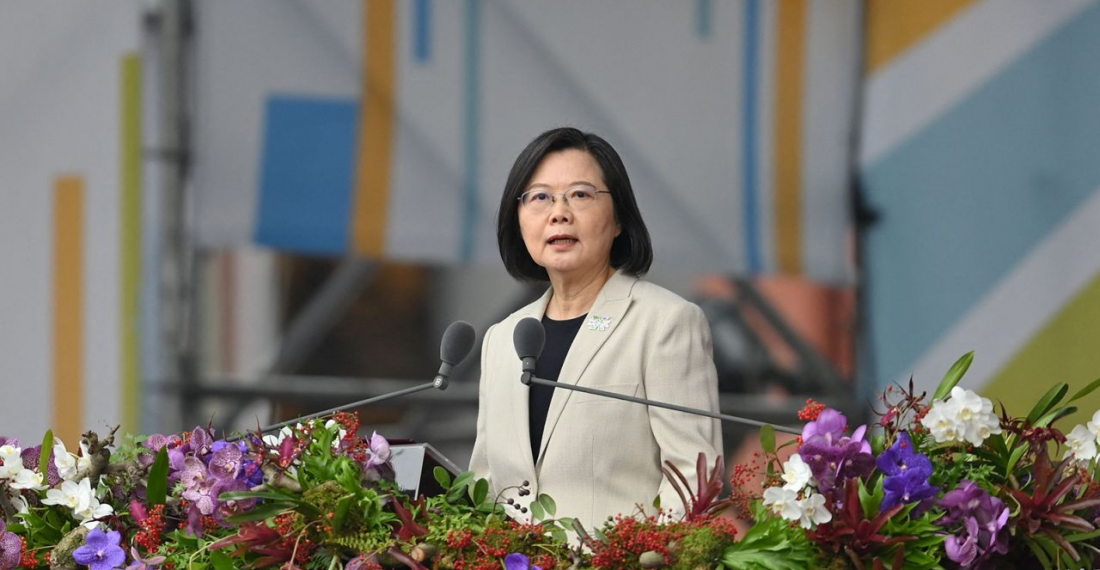As Taiwan celebrated “Double Ten”, the island’s national day on Monday (10 October), President Tsai Ing-wen reiterated Taiwan’s sovereignty in an address to the people of Taiwan.
During a ceremonial speech, President Tsai said that the Taiwanese people “must defend our national sovereignty and our free and democratic way of life. On this point, we have no room for compromise”.
Tsai Ing-wen said it was “regrettable” that China has increased its military and political presence thereby threatening peace and stability in the Taiwan Strait and region.
President Tsai continued to say that they would be willing to have talks with Beijing in order to keep the peace, but only if the negotiations were conducted with “rationality, equality and mutuality”. On top of that, she emphasised that Beijing must not think there is any space for compromise in Taiwan’s commitment to democracy and freedom.
Tensions between China and Taiwan reached a new height following US House Speaker Nancy Pelosi’s visit to Taiwan in August after being warned by the Chinese government not to interfere with their “sovereign security interests”.
Following Pelosi’s visit, China sent their fighter jets across the median line of the Taiwan strait and held three-day long military drills surrounding the island.
On 5 October, Taiwan’s defence minister warned that any Chinese aircraft that would cross Taiwanese territorial airspace would be considered a “first strike”. Moreover, Taiwan’s new defence budget has reached a new record high of 19.41 billion dollars, amounting to 15% of the total government spending. In her speech on Double Ten, President Tsai announced that Taiwan will continue to bolster their national defences and boost their asymmetric warfare capabilities.
source: commonspace.eu with agencies
photo: Sam Yeh/AFP/Getty Images







